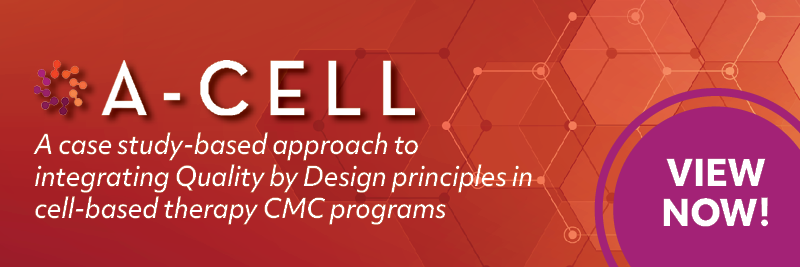
CMC & Manufacturing
ARM identifies barriers to the manufacturing and scale up of regenerative medicines and works with its multi-stakeholder audience to develop and implement solutions.

Overcoming Challenges in Manufacturing
Over the past decade, advanced therapies have transitioned from academic dream to a clinical reality. Though this field has the potential to dramatically transform the health care landscape and treat patients who have in the past had limited or no treatment options, the shifting treatment paradigm also presents development and marketing hurdles which are different from traditional therapies.
These therapies pose unique challenges for manufacturing and scale up, including shorter shelf lives, greater temperature sensitivities, and increased complexity and cost related to purity and identity testing; producing sufficient supply of starting materials, such as cell lines or viral vectors; autologous manufacturing processes for many products, which requires material from the patient to be collected and modified prior administration; and Chemistry, Manufacturing and Controls (CMC) requirements which are not adequately tailored to the specific needs of regenerative medicines or which create and duplicative processes for testing, reporting, and clinical submissions from country to country.
To ensure broad patient access to these transformative therapies in a timely manner, sector stakeholders must now convene to identify and address these challenges.
ARM's Role in Manufacturing
- Assess all FDA, EMA and related CMC guidance relevant to cell and gene therapy and make recommendations where needed to promote a positive environment for manufacturing these products.
- Promote international convergence of regulation and guidance by identifying inconsistency and developing proposals for adoption by regulatory agencies.
- Identify best practices for establishing robust manufacturing processes and quality control.
- Educate the rapidly expanding regenerative medicine workforce via workshops, white papers, and webinars.
- Collaborate with regenerative medicine stakeholder groups and recognized standards organizations to encourage harmonization in manufacturing and CMC standards and guidances.
“Creating A Roadmap For The Development And Manufacture Of Gene Therapies”
Read Now
“Manufacturing Cures: Infrastructure Challenges Facing Cell and Gene Therapy Developers”
Subscribers Non-Subscribers
View Slides View Recording


